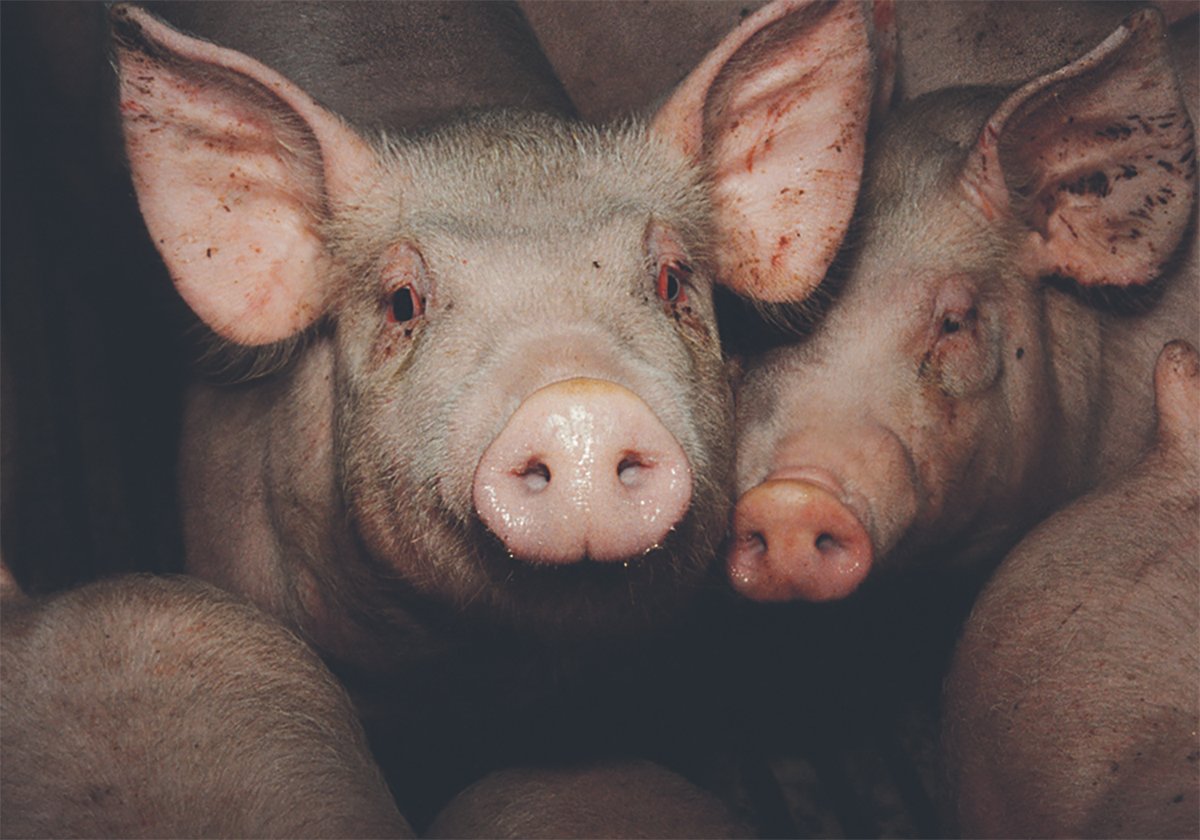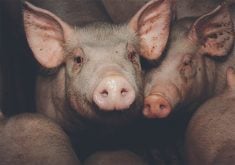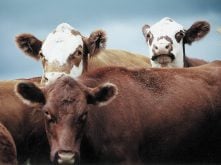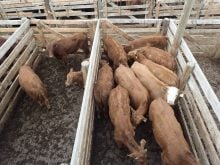Veterinarians are often asked to perform autopsies on sudden deaths, in which a healthy mature animal with no previous history of illness suddenly dies.
This often baffles the producer as well as the veterinarian.
The cause could be a liver abscess. They are rare, but a carefully performed autopsy will determine if that was the cause of death. If so, changes to management might be needed.
Information from postmortems in the BSE testing program shows that this problem may be more common than we thought.
Read Also

The Western Producer Livestock Report – October 30, 2025
Western Producer Livestock Report for October 30, 2025. See U.S. & Canadian hog prices, Canadian bison & lamb market data and sales insights.
Veterinarians conducting autopsies of animals with abscesses may notice that the lungs seem overinflated and that there is some type of interstitial reaction, although not one typical of those seen in common respiratory conditions.
The animal’s body condition is often excellent or perhaps too fat. Almost no struggling occurs before death. It would almost appear that the cow or bull collapsed or died in its sleep.
Abscessation on the liver is another consistent finding in autopsies: usually one large abscess involving a good proportion of the liver but in some cases multiple abscesses.
Carefully dissecting out the abscess can reveal a connection between the abscess and the large blood vessels running through the liver. The largest is called the vena cava, which returns blood to the heart from the body.
The abscess is like a time bomb waiting to go off.
It can erode into the wall of the blood vessel as it grows, depending on its location. If it breaks through, pus flows into the blood vessel, goes to the heart and is pumped directly to the lungs.
This sudden spread plugs all the small vessels in the lung, resulting in respiratory failure and sudden death.
Lung tissue can be sent to a lab for confirmation.
I have seen this in old and young cows, yearling bulls and older bulls insured for lots of money.
Abscesses can also rupture to the outside of the liver, causing a massive peritonitis.
The abscesses probably have been present since the animal was young and have gradually grown over time to the point of becoming a problem.
Navel infections can cause liver abscesses in calves. Calves with a history of being treated for navel ill are seldom retained as breeding animals.
Most other cases of liver abscesses result from mild to severe cases of rumenitis, or grain overload.
A sudden change of diet can cause the rumen to become inflamed and bacteria seed out into the liver. The result is the start of a liver abscess.
These can be seen in feedlot animals at slaughter, but seldom do they have time to grow large and break into the blood stream.
They probably do happen but may be missed on an autopsy, if an autopsy was performed at all.
If one animal has died from this condition, there might be others in the herd in varying stages of liver abscessation.
They would appear healthy, even if a vet does blood counts looking for infection or checks various liver function parameters.
Many livers with abscesses indicate a feeding problem or the lack of ionophores.
Veterinarians can help producers analyze their feeding programs and make sure rumensin (monensin) or another ionophore is used. The change must be gradual when transitioning from roughage to a grain diet.
The cost of the loss can be huge, especially on valuable breeding stock or show animals. Cattle raised on a hotter feed will have a higher incidence.
Have an autopsy performed on these sudden deaths and make sure the liver is checked as well as other internal organs such as the kidneys.














